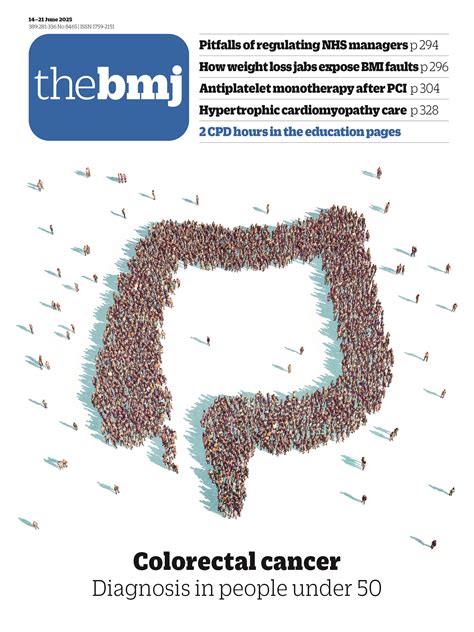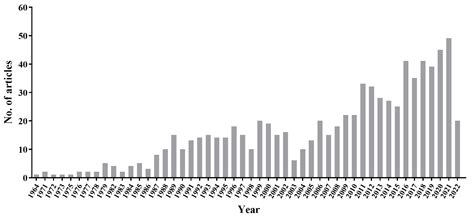Immunocomprised

Understanding the immune system and its intricate mechanisms is vital in the world of modern medicine. Among the myriad of medical conditions, the term "immunocompromised" stands out as a critical concept with far-reaching implications. This state of the body's defense system can have a profound impact on an individual's health and quality of life, making it an essential topic to explore and understand.
Immune System: The Body’s Defense Force

The human immune system is an intricate network of cells, tissues, and organs that work in harmony to defend the body against harmful invaders, including bacteria, viruses, and parasites. It’s a complex and dynamic system, designed to recognize and remember these invaders, known as pathogens, to mount a faster and more efficient response upon subsequent encounters.
At the heart of the immune system are specialized cells known as lymphocytes, which include B-cells, T-cells, and natural killer cells. B-cells produce antibodies, which are proteins that specifically recognize and bind to pathogens, marking them for destruction. T-cells, on the other hand, have a variety of roles, including directly killing infected cells and regulating the immune response. Natural killer cells also play a crucial role in recognizing and eliminating infected or cancerous cells.
What Does It Mean to Be Immunocompromised?

Being immunocompromised, or having a compromised immune system, means that one’s body has a reduced ability to fight off infections and diseases. This state can be temporary or permanent, and it can range from mild to severe. In simple terms, the body’s defense mechanisms are not functioning optimally, making individuals more susceptible to illnesses and infections that a healthy immune system would typically fend off.
There are several reasons why someone might become immunocompromised. Some people are born with immune deficiencies, a condition known as primary immunodeficiency. Others may develop immunodeficiency later in life, often as a result of certain medical treatments, medications, or underlying health conditions. These include HIV/AIDS, cancer treatments like chemotherapy and radiation, organ or bone marrow transplants, prolonged use of corticosteroids, and autoimmune diseases, to name a few.
Types of Immunocompromise
Immunocompromise can be categorized into several types, each with its unique characteristics and implications.
- Primary Immunodeficiency: This is a genetic condition where the immune system doesn’t function properly from birth. There are over 400 known primary immunodeficiency diseases, ranging from mild to severe. They can affect any part of the immune system and often lead to frequent and severe infections.
- Secondary Immunodeficiency: This type of immunocompromise is acquired later in life due to environmental factors, diseases, or treatments. It can be caused by a wide range of factors, including HIV/AIDS, certain cancers and their treatments, malnutrition, aging, and more. Secondary immunodeficiency can be temporary or permanent, depending on the underlying cause.
- Combined Immunodeficiencies: As the name suggests, this condition involves a combination of problems affecting both the innate and adaptive immune systems. It often leads to severe and recurrent infections and can be life-threatening if not managed properly.
Risk Factors and Prevalence
The prevalence of immunocompromise varies depending on the specific condition and the population studied. For instance, primary immunodeficiencies are estimated to affect approximately 1 in every 1,200 individuals worldwide. However, many cases go undiagnosed, especially in developing countries where access to healthcare may be limited.
Secondary immunodeficiencies, on the other hand, are more common and can affect anyone, regardless of age or background. For example, HIV/AIDS, which is a major cause of secondary immunodeficiency, was estimated to affect 37.7 million people worldwide in 2020, according to the World Health Organization. Additionally, the use of immunosuppressive medications after organ transplants and the growing number of cancer survivors due to advances in treatment also contribute to the rising prevalence of secondary immunodeficiency.
Impact and Challenges
Being immunocompromised can significantly impact an individual’s daily life and overall health. Here are some key challenges and considerations:
- Increased Risk of Infections: One of the most significant challenges is the heightened susceptibility to infections. Immunocompromised individuals may experience more frequent and severe infections, which can lead to prolonged illness and, in some cases, life-threatening complications.
- Medication and Treatment Side Effects: Many treatments for immunodeficiencies, such as immunosuppressant drugs, can have significant side effects. These may include fatigue, gastrointestinal issues, increased risk of certain cancers, and bone marrow suppression, which can further compromise the immune system.
- Lifestyle Modifications: Living with a compromised immune system often requires significant lifestyle adjustments. These may include strict dietary restrictions, frequent medical appointments, and avoiding crowded places or people who are sick to minimize the risk of infection.
- Psychological Impact: The chronic nature of many immunodeficiency conditions can lead to significant psychological stress. Anxiety, depression, and social isolation are not uncommon among immunocompromised individuals, who may struggle with the physical, emotional, and social implications of their condition.
Managing Immunocompromise
Managing immunocompromise is a multifaceted approach that involves a combination of medical treatments, lifestyle modifications, and psychological support.
- Medical Treatments: The primary goal of medical treatment is to boost the immune system's function and prevent or manage infections. This may involve a range of interventions, from daily medications to regular infusions of immunoglobulins (antibodies) or stem cell transplants. For those with HIV/AIDS, antiretroviral therapy is crucial in managing the virus and preventing further damage to the immune system.
- Lifestyle Adjustments: Immunocompromised individuals are often advised to maintain a healthy lifestyle, including a balanced diet rich in nutrients, regular exercise, and adequate sleep. They may also need to take extra precautions to avoid infections, such as frequent handwashing, avoiding raw or undercooked foods, and staying away from people with contagious illnesses.
- Psychological Support: Given the emotional toll that immunodeficiency conditions can take, psychological support is often an integral part of management. This may include individual or group therapy, counseling, or support groups, which can provide a sense of community and understanding for those living with immunocompromise.
Prevention and Future Prospects
While not all causes of immunocompromise can be prevented, certain measures can help reduce the risk or manage the condition more effectively.
- Vaccination: Vaccines are a crucial tool in preventing infections and reducing the severity of illnesses. Immunocompromised individuals, especially those with primary immunodeficiencies, may require specialized vaccine schedules or formulations. For example, live vaccines (which contain weakened forms of the pathogen) may not be suitable for some immunocompromised individuals, while others may require higher doses or more frequent booster shots.
- Early Diagnosis and Treatment: Prompt diagnosis and initiation of appropriate treatment can significantly improve outcomes for many immunodeficiency conditions. For instance, early diagnosis and treatment of HIV/AIDS can lead to a near-normal lifespan and a greatly reduced risk of transmitting the virus to others.
- Advances in Immunotherapy: The field of immunotherapy is rapidly evolving, offering new hope for individuals with immunodeficiencies. For example, CAR T-cell therapy, a type of immunotherapy that uses genetically modified T-cells to fight cancer, has shown promising results in clinical trials. While still in its early stages, this and other forms of immunotherapy hold great promise for the future management of immunocompromise.
Conclusion
Being immunocompromised presents unique challenges and considerations that can significantly impact an individual’s health and daily life. However, with proper medical care, lifestyle adjustments, and psychological support, many individuals can lead fulfilling lives despite their compromised immune systems. Furthermore, ongoing research and advances in medical science offer hope for improved diagnosis, treatment, and management of immunodeficiency conditions, providing a brighter future for those affected.
How does one know if they are immunocompromised?
+Symptoms of a compromised immune system can vary, but may include frequent and severe infections, slow wound healing, persistent fatigue, and recurrent oral thrush or yeast infections. If you’re experiencing any of these symptoms, it’s important to consult a healthcare professional for proper diagnosis and management.
What are some common causes of secondary immunodeficiency?
+Secondary immunodeficiency can be caused by a variety of factors, including HIV/AIDS, cancer treatments like chemotherapy and radiation, organ transplants, prolonged use of corticosteroids, autoimmune diseases, malnutrition, and aging. It’s important to identify the underlying cause to effectively manage the immunodeficiency.
Can lifestyle changes improve immune function in immunocompromised individuals?
+While lifestyle changes alone may not be sufficient to restore immune function in immunocompromised individuals, they can certainly play a supportive role. Maintaining a healthy diet, regular exercise, adequate sleep, and stress management can help optimize overall health and potentially reduce the risk of infections. However, it’s important to consult with a healthcare professional for personalized advice and guidance.



